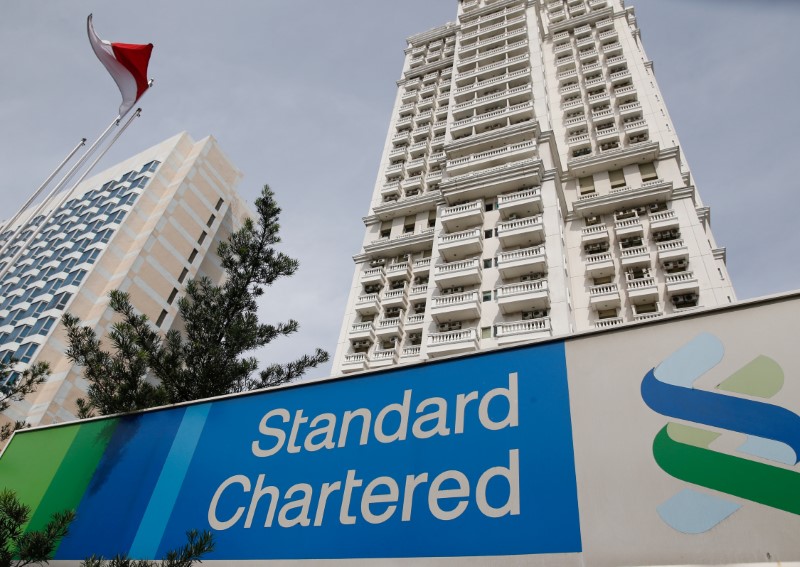By Michelle Price and Pete Schroeder
WASHINGTON (Reuters) - The chairman of British bank Standard Chartered (LON:STAN) [STANB.UL] called on U.S. policymakers to preserve a key post-crisis power that allows bank regulators to wind down a failing lender, even as the Trump administration looks to slash red tape across the financial sector.
The comments by Jose Vinals, one of the industry's most senior and influential bankers, will add to growing pressure on the U.S. Treasury to support preserving special bank liquidation powers introduced after the 2007-09 global financial crisis. The Treasury is expected to release a widely anticipated review of the policy in the coming weeks, which was ordered by President Donald Trump in April.
The "orderly liquidation authority" or OLA, introduced by the 2010 Dodd-Frank financial reform law, gives U.S. regulators the power to step in and liquidate a troubled bank instead of putting it through a traditional bankruptcy.
"It's very important to preserve the ability of the U.S. to have special procedures to intervene and resolve systemically important financial institutions when there is an emergency," Vinals told Reuters on Wednesday on the sidelines of the Institute of International Finance conference in Washington.
"In exceptional circumstances you need to resort to exceptional means. As there is yet to be clarity on what is going to happen, I have a hope, rather than an expectation" that the U.S. will preserve it, he added.
Conservative Republicans oppose the OLA which they say is an intrusive bailout mechanism in disguise, arguing that banks should be steered through a traditional bankruptcy process.
Big banks and their regulators say bankruptcy codes are not sophisticated enough to handle a global bank failure and that special powers are needed to prevent another Lehman Brothers-style bankruptcy that could destabilize the financial system.
The United States is one of several jurisdictions including the European Union that agreed to introduce special powers to ensure banks can be wound down across multiple borders.
Vinals said it made sense to see how rules could be recalibrated now regulators are moving into a "business as usual mode" but stressed it was important to broadly maintain continuity, both inside and outside the United States.
"It is also critical to ensure cross-border resolution, otherwise we will go back to what we had before, where global banks are global in life, but local in death," said Vinals, who joined Standard Chartered a year ago after having served at the International Monetary Fund where he helped draft post-crisis rules.
LOBBYING EFFORTS
Global banks as well as U.S. and European regulators have been heavily lobbying the Treasury to preserve the OLA, according to several people with knowledge of the discussions.
They have argued that rescinding the OLA would increase systemic risk and put U.S. banks on an uneven footing overseas, potentially leading foreign regulators to require them to ringfence more capital in the markets in which they operate.
It would also likely require banks to upgrade their so-called living wills, which outline how they would be unwound in the event of bankruptcy. They have spent years and millions of dollars refining those plans.
The sources said they believed the Treasury was poised to recommend preserving the mechanism, while also urging changes to the current bankruptcy code. The Treasury declined to comment.
Repealing the OLA would ultimately have to be decided by Congress, but the Treasury's recommendation would carry weight.
Anthony Cimino, head of government affairs at bank lobby group the Financial Services Roundtable, said large financial firms strongly support efforts to beef up the bankruptcy code but insist that regulators must retain the OLA as an extra buffer.
"We want to make sure that the system has the tools to resolve and unwind a large institution. Obviously orderly liquidation is one of those tools."
